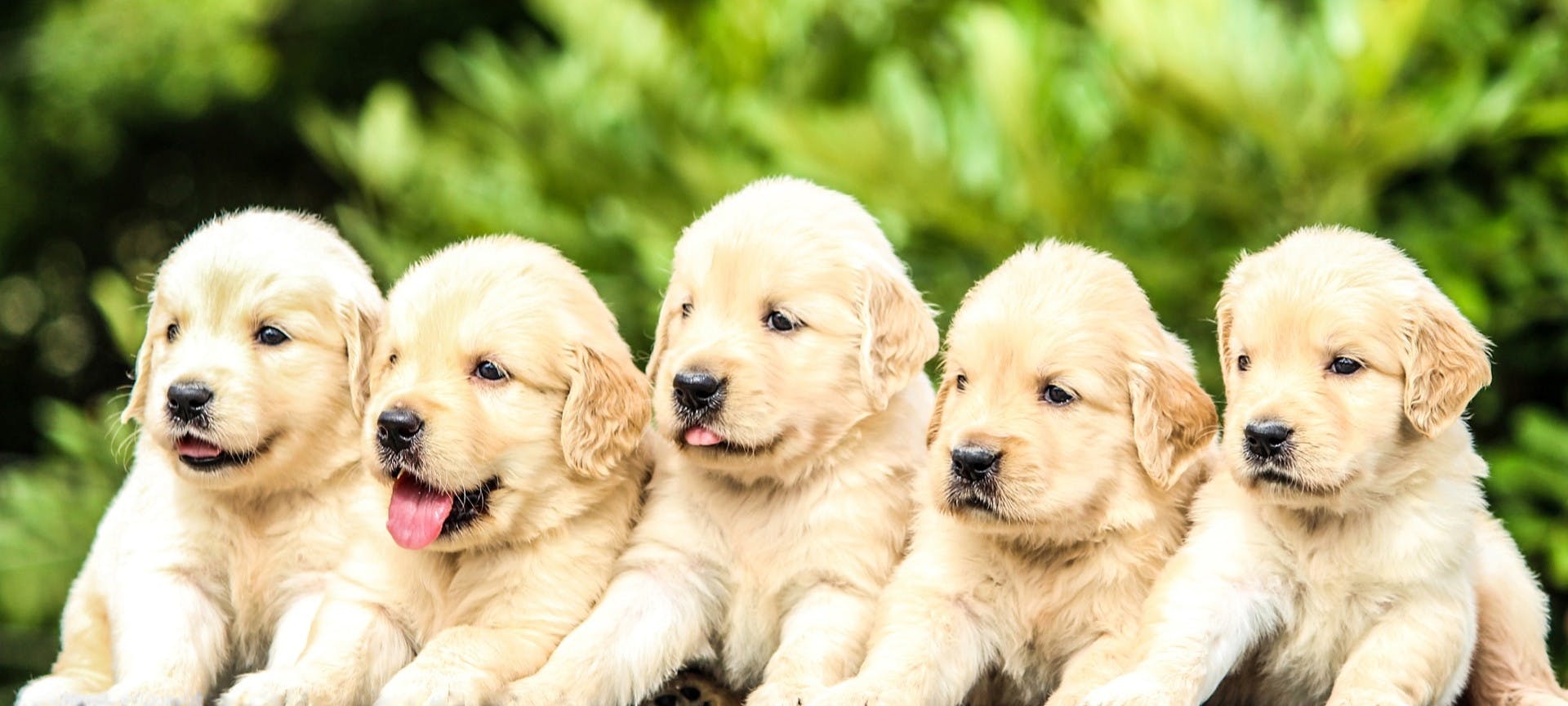If your golden retriever is pregnant, and you are trying to figure out the size of the litter, we got your back. It is always a good idea to know how many puppies your dog can have to prepare to provide proper care for her and to help her produce a healthier litter. The dogs’ litter size varies, mainly depending on the breed of the dog and genetics.
The article discusses average litter size, how the litters differ for first-time and experienced mothers, and the different aspects influencing litter size to help you prepare for the litter, which is easier on your dog.
What Is The Average Golden Retriever Litter Size?
Litter size may vary depending on the breed of the dog. Logically, small breed dogs are more likely to have small litter sizes, and larger breed dogs have larger litters. Golden retrievers can have puppies between 4 to 12.
Usually, the average litter size of golden retrievers is around eight. Along with breed, various other factors affect the litter size, including genetics and parents’ overall health. Also, the first litter for golden retrievers is typically smaller than the litter after that.
First-Time vs Experienced Mothers
It may come as a surprise, but the number of times your golden retriever dog gave birth also determines the size of the litter. If your golden retriever is pregnant for the first time, she will most likely have around 8 puppies. It has been the most reported average golden retriever puppy litter size for first-time mothers, so your dog may have more or less the same number of puppies.
If your dog has given birth before and this is not her first time, you can expect to have a dog litter size between 6 and 10 puppies. Giving birth to only one puppy is pretty unlikely in the golden retriever breed’s case. Golden retriever dogs may even have over a dozen puppies in one litter; however, it is also uncommon.
Abnormal Litter Sizes
Is the litter size too small or too large? Complications during breeding, pregnancy, or delivery could have occurred. When the litter size is smaller, it could be because the female dog was not bred at the correct time, and some eggs may not have been inseminated. Also, the male dog was too old and may not produce sufficient sperm count.
Whereas, when the litter size is too large, the puppies may have to be delivered by cesarean because mothers are often fatigued getting all the puppies out. If your dog is expecting a larger litter size and it takes too long to deliver all the puppies, some may be stillborn. If the puppy stays in the uterus for too long, it can cause other issues, which is why a cesarean is needed.
Parents' overall health also affects the litter size. For example, if the mother is injured or has a physical deformity, it can have an impact on the size of the litter.
What Can Affect Litter Size?
Various factors contribute to the litter size of a golden retriever, such as diet and age of both parents. If you want your golden retriever dog’s litter larger and healthier, here are some significant aspects that influence the litter size.
Diet
The diet of your pregnant golden retriever is crucial as it affects the size of the litter. A healthy and balanced diet with all the essential nutrients is vital for pregnant dogs. You must provide high-quality vitamins, minerals, and protein in their diet throughout their pregnancy and even after the birth of puppies because it helps maintain the puppies’ health.
Avoid dog food fillers and additives as they lack proper nutrition, eventually affecting your golden retriever’s litter size.
Age of Parents
Breeding your female golden retriever too young or too old may also affect the litter size. The appropriate age for female dogs to breed is between the ages of 2 and 5 if they are bred for the first time. The size of the litter typically decreases as the dog ages.
Male dogs’ age also plays a critical part in litter size because their sperm count decreases once they reach the age of 4 or 5.
Obesity
If your dog is overweight, it can affect her litter. Obese dogs may typically have a smaller litter size. Your golden retriever must be in good health because it can influence her litter, and the puppy may also be born weak if your dog has health issues.
Genetics
Excessively inbred dogs are more likely to have limited litter sizes than dogs with a more diverse gene pool. You must ask your breeder about the parents' genetic history if you are buying a puppy because overly inbred dogs are at high risk of having genetic defects. In general, it’s always useful to know your dog’s genetic makeup, because it will give you a better understanding of possible health concerns. Fortunately, today it can be done easily with an at-home dog DNA test that will give you a full picture of the pet’s health.
Conclusion
A dog's litter size can vary depending on various factors that you must consider before breeding her. Also, the best would be to get your dog checked with your veterinarian if she is pregnant to ensure she is in perfect health condition and can carry a healthy litter. To keep your dog healthy and happy, provide a balanced diet and exercise.
Frequently Asked Questions
What is the average dog litter size? The normal range for litter size is between 1 and 12, and the average dog litter size is 5 to 6 puppies.
How long are dogs pregnant? The pregnancy or gestational period in dogs typically ranges from 57 to 65 days, with an average of 63 days.
How long are golden retrievers pregnant? Like any other dog, the gestational period in golden retrievers is normally 63 days on average.
